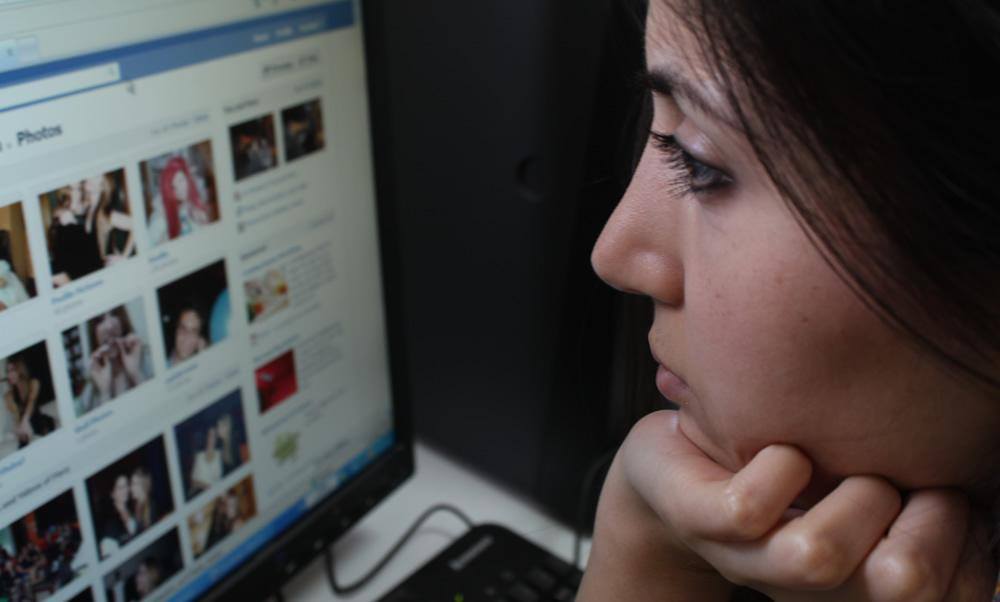Large-scale study of the impact of social networks: virtual relationships make people unhappy

According to data provided by the company last year, the average Facebook user spends almost an hour of his life on this social network every day. A survey by consulting company Deloitte showed that for many users, testing social network applications is the first thing they do in the mornings, even before they get out of bed. Of course, social interaction is a healthy and necessary part of human existence. Thousands of researchers have already concluded that most people feel better when they have strong and positive relationships with other people.
The problem is that most of the scientific work on social interaction was carried out within the framework of real “social networks” - face-to-face interactions of people, and not in online relationships, which are becoming more common.
')
We know that interaction with people in real life has a beneficial effect on a person. What about relationships that are built directly through the screen of a smartphone or computer? What impact do people have on social networks?
Previous research in this area has shown that the use of social networks can reduce real interaction with people, increase the length of time spent in a sitting position, lead to Internet addiction and undermine self-esteem as a result of social comparison.
Self-esteem has a strong influence on people's behavior, and since all users tend to demonstrate in social networks only the positive aspects of their lives, a person can believe that his own life is not as good as the life of another.
However, some skeptics ask themselves: is it possible that people with lower levels of well-being are more likely to use social networks, and not social networks cause lower well-being? Some studies have found that social networks have a positive effect on welfare because they expand social support and strengthen relationships in the real world.
Researchers Holly Shakya from the University of California and Nicholas Christakis from Yale University decided to get a clearer picture of the relationship between well-being and the use of social networks. Scientists for three years studied the data of 5 thousand people. They gathered Facebook usage information and health data to see how well-being changes over time due to the use of the social network.
Evaluation of well-being was conducted on the basis of information about life satisfaction, self-esteem, psychological and physical health, and body mass index. In each survey wave, researchers asked respondents to name up to four friends with whom they discuss important issues, and as many people with whom they spend their free time to assess interaction in the real world.
Researchers cite three advantages that distinguish their scientific work from others. First, they studied three waves of data from respondents over a period of three years. This allowed them to track how changes in the use of social networks changed their well-being. Secondly, they had objective indicators of the use of the social network taken directly from their accounts, and not the self-reports of the respondents. And thirdly, in addition to Facebook data, they had information about real interactions with other people, which made it possible to compare the impact on the respondent of in-person and virtual interactions.
Meanwhile, the researchers themselves point out some reservations. For example, many users did not provide access to their data on Facebook, most of those who refused were young people. Thus, the results can be "skewed" in the direction of the experience of using the social network by more adult respondents (the researchers took into account their age and gender).
The average age of those subjects who provided Facebook data was 48 years old - people of that age lived more than half of their lives without the widespread influence of the Internet. Plus, in research based on data from respondents, there may be some error.
The result will seem expected for someone: using Facebook has made people less happy. The use of a social network for one year showed a decrease in psychological health in the next. The key indicator confirming the hypothesis is that each increase in the number of likes, clicks on links and status updates reduces psychological health indicators by 5% to 8%.
Researchers measured three types of activity: “likes”, placement of publications and following links, as well as their impact on the user. And while they expected that content from other people with likes was more likely to lead to critical self-analysis and, consequently, to a decrease in well-being, updating their own status and link clicks had a similar effect.
However, not everything is as bad as it may seem. Researchers also note that people often turn to Facebook when they are already sad because they don’t want to be in direct contact with people in this state.
In general, the results suggest that a decrease in general mood depends not only on the quality of Facebook use, but also on the quantity (that is, the frequency and time of stay). And although being too long in front of the screen is a long-standing problem, the trick of social networking is that while people use them, they get the impression that they are engaged in meaningful social interaction. Scientists have confirmed that the nature and quality of such relationships cannot replace interactions with the real world, which are necessary for a healthy life.
Fully study the impact of social networks, of course, difficult. The impact of carefully selected photos and other content on the lives of others leads to a decrease in self-esteem, and constant interaction with people in social networks can distract from more significant real-life events. And it is abundantly clear that virtual social interactions cannot replace real ones.
doi: 10.1093 / aje / kww189
Source: https://habr.com/ru/post/370369/
All Articles